Nel panorama in continua evoluzione della bellezza e della cura della persona, i sieri per la pelle sono emersi come una categoria di prodotti fondamentale, catturando l'attenzione dei consumatori e dei professionisti del settore. Mentre ci muoviamo nel 2025, la domanda di sieri per la pelle continua a crescere, guidata da formulazioni innovative, maggiore consapevolezza dei consumatori e l'influenza delle tendenze dei social media. Questa guida completa approfondisce i fattori che spingono la popolarità dei sieri per la pelle, offrendo spunti preziosi per gli acquirenti aziendali che cercano di capitalizzare su questo mercato in crescita.
Sommario:
– Comprendere l’aumento di popolarità dei sieri per la pelle
– Esplorare la vasta gamma di sieri per la pelle disponibili
– Affrontare i problemi comuni dei consumatori con i sieri per la pelle
– Innovazioni e nuovi prodotti nel mercato del siero per la pelle
– Considerazioni chiave per l’approvvigionamento di sieri per la pelle
– Conclusione: il futuro dei sieri per la pelle nel settore della bellezza
Comprendere l'aumento di popolarità dei sieri per la pelle
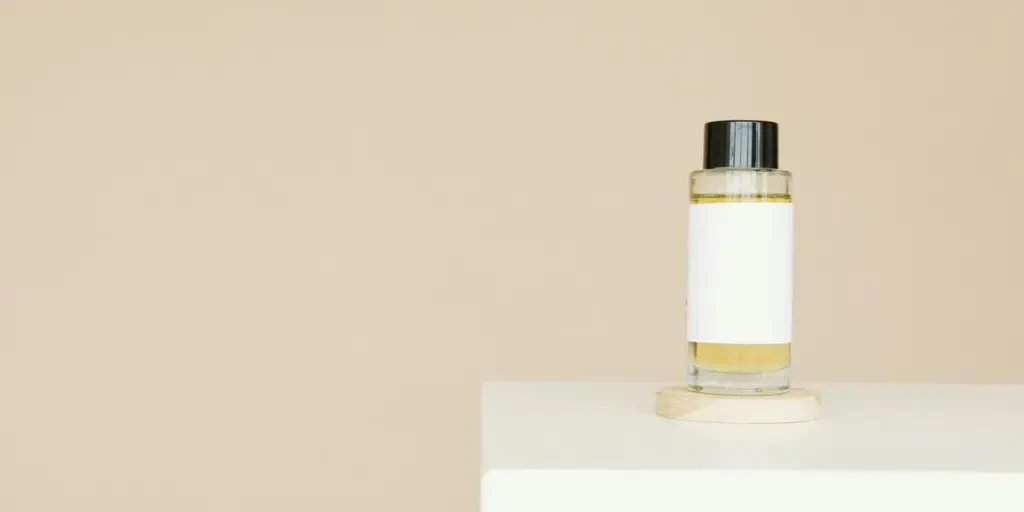
Perché i sieri per la pelle saranno un argomento di tendenza nel 2025?
I sieri per la pelle sono diventati un pilastro delle routine di cura della pelle grazie alle loro potenti formulazioni e ai benefici mirati. A differenza delle creme e delle lozioni tradizionali, i sieri sono progettati per fornire alte concentrazioni di ingredienti attivi direttamente sulla pelle, affrontando problemi specifici come invecchiamento, iperpigmentazione e disidratazione. Secondo un rapporto professionale, si prevede che il mercato globale dei sieri per il viso crescerà da 6.17 miliardi di USD nel 2023 a 12.27 miliardi di USD entro il 2030, riflettendo un tasso di crescita annuale composto (CAGR) del 10.31%. Questa crescita è alimentata dalla crescente consapevolezza dei consumatori sulle routine di cura della pelle e dall'importanza di ingredienti di qualità.
Tendenze e hashtag dei social media che guidano la domanda
L'influenza dei social media non può essere sopravvalutata quando si tratta della crescente popolarità dei sieri per la pelle. Piattaforme come Instagram e TikTok sono diventate terreno fertile per le tendenze di bellezza, con hashtag come #SkinSerum, #GlassSkin e #SerumSundays che stanno guadagnando un'enorme trazione. Queste tendenze sono spesso promosse da influencer di bellezza e dermatologi che condividono le loro routine di cura della pelle e consigli sui prodotti, creando un effetto a catena che guida l'interesse e gli acquisti dei consumatori. La natura visiva di queste piattaforme consente agli utenti di mostrare i benefici immediati e a lungo termine dell'utilizzo dei sieri, consolidando ulteriormente il loro posto nei regimi di cura della pelle quotidiani.
Allineamento con le tendenze più ampie di bellezza e benessere
L'aumento di popolarità dei sieri per la pelle è anche strettamente allineato con le tendenze più ampie di bellezza e benessere. I consumatori stanno dando sempre più priorità alla cura di sé e al benessere olistico, cercando prodotti che non solo migliorino il loro aspetto, ma contribuiscano anche al loro benessere generale. La domanda di prodotti per la cura della pelle puliti e sostenibili è in aumento, con una crescente preferenza per formulazioni prive di sostanze chimiche nocive e rispettose dell'ambiente. Secondo un rapporto di Research and Markets, si prevede che il mercato dei prodotti per la cura della pelle crescerà fino a 220.3 miliardi di dollari entro il 2028, guidato dall'aumento di prodotti per la cura della pelle puliti e sostenibili, soluzioni per la cura della pelle personalizzate e dall'integrazione di dispositivi tecnologici di bellezza per la cura della pelle a casa.
In conclusione, il mercato dei sieri per la pelle è pronto per una crescita significativa nel 2025, guidata da formulazioni innovative, influenza sui social media e allineamento con le tendenze più ampie di bellezza e benessere. Gli acquirenti aziendali nel settore della bellezza e della cura della persona dovrebbero prendere nota di questi fattori e considerare l'incorporazione dei sieri per la pelle nelle loro offerte di prodotti per capitalizzare questa redditizia opportunità di mercato.
Esplorazione della vasta gamma di sieri per la pelle disponibili

Sieri anti-età: ingredienti ed efficacia
I sieri anti-invecchiamento sono una pietra miliare nel settore della cura della pelle, in particolare per la loro capacità di affrontare i segni dell'invecchiamento come rughe, linee sottili e perdita di elasticità. Questi sieri contengono spesso ingredienti potenti come retinolo, peptidi e acido ialuronico. Il retinolo, un derivato della vitamina A, è rinomato per la sua capacità di accelerare il turnover cellulare e stimolare la produzione di collagene, rendendolo un elemento fondamentale nelle formulazioni anti-invecchiamento. I peptidi, d'altra parte, sono brevi catene di amminoacidi che aiutano a ricostruire e riparare le cellule danneggiate, migliorando la compattezza e l'elasticità della pelle. L'acido ialuronico è celebrato per le sue proprietà idratanti, in grado di trattenere fino a 1,000 volte il suo peso in acqua, rimpolpando così la pelle e riducendo la comparsa di linee sottili.
L'efficacia dei sieri anti-invecchiamento è spesso supportata da studi clinici e approvazioni di dermatologi. Ad esempio, il siero peptidico modulatore di rughe P-TIOX di SkinCeuticals è progettato per imitare gli effetti delle iniezioni di neurotossine, offrendo un'alternativa non invasiva ai tradizionali trattamenti anti-invecchiamento. Questo siero combina i peptidi con altri ingredienti attivi per fornire risultati visibili, come rughe ridotte e una migliore consistenza della pelle, entro poche settimane di utilizzo. L'inclusione di ingredienti così ad alte prestazioni e il supporto di dati clinici rendono questi sieri una scelta affidabile per gli acquirenti aziendali che cercano di rifornirsi di soluzioni anti-invecchiamento efficaci.
Sieri idratanti: feedback dei consumatori e scelte popolari
I sieri idratanti sono essenziali per mantenere i livelli di idratazione della pelle, in particolare in ambienti con umidità e temperatura variabili. Questi sieri contengono in genere ingredienti come acido ialuronico, glicerina e ceramidi, che lavorano insieme per attrarre e trattenere l'idratazione nella pelle. L'acido ialuronico, in particolare, è un ingrediente di spicco per la sua capacità di idratare in profondità e rimpolpare la pelle, rendendolo uno dei preferiti sia dai consumatori che dai professionisti della cura della pelle.
Il feedback dei consumatori sui sieri idratanti spesso evidenzia i loro effetti idratanti immediati e duraturi. Prodotti come Plum Plump Hyaluronic Serum di Glow Recipe hanno raccolto recensioni positive per la loro capacità di fornire un'idratazione intensa senza lasciare residui untuosi. Questo siero combina l'acido ialuronico con la vitamina B5 e l'acido poliglutammico, potenziandone le proprietà idratanti e di rafforzamento della barriera cutanea. La popolarità di tali prodotti è evidente nelle loro frequenti menzioni nei forum di bellezza e nelle valutazioni elevate sulle piattaforme di e-commerce, rendendoli un'aggiunta preziosa a qualsiasi linea di prodotti per la cura della pelle.
Sieri schiarenti: pro, contro e accoglienza del mercato
I sieri schiarenti sono formulati per affrontare problemi come iperpigmentazione, macchie scure e tono della pelle non uniforme. Gli ingredienti chiave di questi sieri includono vitamina C, niacinamide e alfa arbutina. La vitamina C è un potente antiossidante che aiuta a neutralizzare i radicali liberi e inibire la produzione di melanina, portando a una carnagione più luminosa e uniforme. La niacinamide, nota anche come vitamina B3, è efficace nel ridurre l'infiammazione e migliorare la consistenza della pelle, mentre l'alfa arbutina lavora per schiarire le macchie scure e prevenirne la formazione di nuove.
L'accoglienza del mercato per i sieri schiarenti è stata estremamente positiva, con prodotti come il siero alla vitamina C Glow Factor di Skin Pharm che hanno ricevuto grandi elogi per la loro efficacia. Questo siero combina il 10% di acido L-ascorbico con lattato di sodio e derivato dell'acido azelaico per fornire un potente effetto schiarente pur essendo delicato sulla pelle. Tuttavia, alcuni consumatori potrebbero provare una leggera irritazione o sensibilità quando utilizzano alte concentrazioni di principi attivi, evidenziando l'importanza di offrire formulazioni che bilancino potenza e tolleranza cutanea. Gli acquirenti aziendali dovrebbero considerare di rifornire una gamma di sieri schiarenti per soddisfare diversi tipi di pelle e sensibilità, assicurando un ampio appeal sul mercato.
Affrontare i problemi comuni dei consumatori con i sieri per la pelle
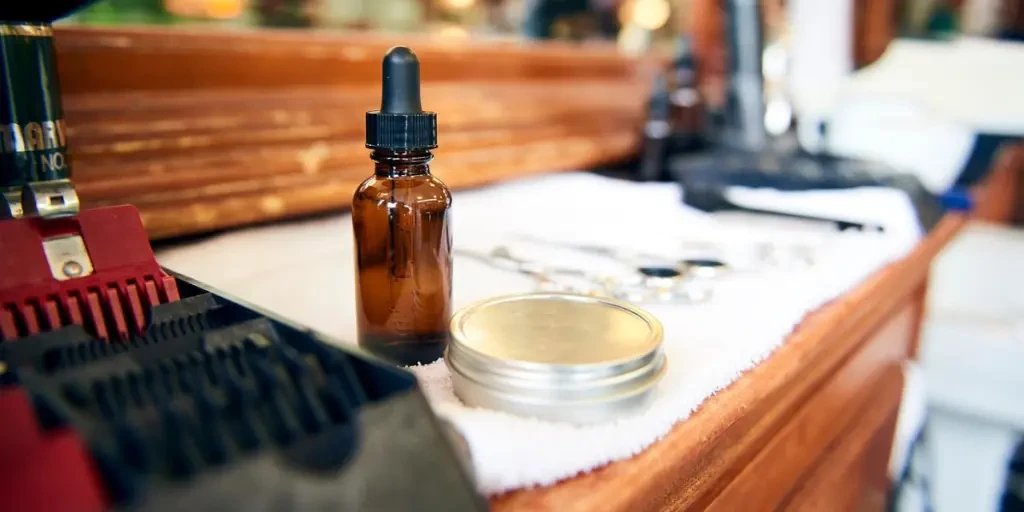
Come affrontare la sensibilità e le reazioni allergiche
Una delle principali preoccupazioni dei consumatori quando selezionano i sieri per la pelle è il potenziale di sensibilità e reazioni allergiche. Ciò è particolarmente rilevante per i prodotti contenenti alte concentrazioni di principi attivi, che a volte possono causare irritazione. Per risolvere questo problema, molti marchi stanno formulando sieri con ingredienti lenitivi e antinfiammatori come aloe vera, camomilla e centella asiatica. Questi ingredienti aiutano a calmare la pelle e a ridurre il rischio di irritazione, rendendo i sieri adatti alle pelli sensibili.
Ad esempio, i sieri Skin Rescue di bareMinerals sono progettati per essere potenti ma delicati, con ingredienti come niacinamide e chebula per ridurre linee sottili e rughe senza causare irritazioni. Questi sieri sono clinicamente testati per migliorare le condizioni della pelle entro una settimana, dimostrando che risultati visibili non devono andare a discapito del comfort della pelle. Gli acquirenti aziendali dovrebbero dare priorità allo stoccaggio di sieri testati dai dermatologi e privi di irritanti comuni come parabeni, profumi e coloranti per soddisfare i consumatori con pelle sensibile.
Garantire l'autenticità e la qualità del prodotto
Garantire l'autenticità e la qualità dei sieri per la pelle è fondamentale per mantenere la fiducia e la soddisfazione dei consumatori. I prodotti contraffatti non solo rappresentano un rischio per la salute dei consumatori, ma danneggiano anche la reputazione dei marchi legittimi. Per combattere questo problema, molte aziende stanno implementando tecnologie di imballaggio avanzate come sigilli antimanomissione, codici QR ed etichette olografiche per verificare l'autenticità del prodotto. Queste misure aiutano a rassicurare i consumatori che stanno acquistando prodotti autentici.
Inoltre, è essenziale procurarsi sieri da fornitori e produttori affidabili con una comprovata esperienza di controllo qualità. Marchi come SkinCeuticals e Glow Recipe sono noti per i loro rigorosi test e gli elevati standard, il che li rende scelte affidabili per gli acquirenti aziendali. Dando priorità all'autenticità e alla qualità, i rivenditori possono creare fiducia con i propri clienti e ridurre il rischio di recensioni negative e resi.
Bilanciare il prezzo con il valore percepito
Il prezzo è un fattore significativo nelle decisioni di acquisto dei consumatori e trovare il giusto equilibrio tra costo e valore percepito è essenziale per gli acquirenti aziendali. Mentre i sieri premium spesso hanno un prezzo più alto, offrono anche formulazioni avanzate, supporto clinico e confezioni di lusso che giustificano il costo. Tuttavia, c'è anche una crescente domanda di soluzioni per la cura della pelle convenienti ma efficaci, in particolare tra i consumatori più giovani e quelli alle prime armi con le routine di cura della pelle.
Marchi come Bubble Skincare hanno sfruttato con successo questo mercato offrendo sieri potenti a prezzi accessibili. I loro sieri Moon Walk e Water Slide, al prezzo di $ 17 ciascuno, offrono un'esfoliazione delicata e proprietà idratanti, rendendoli opzioni interessanti per i consumatori attenti al budget. Offrendo una gamma di sieri a prezzi diversi, gli acquirenti aziendali possono soddisfare un pubblico più ampio e soddisfare le diverse esigenze dei consumatori.
Innovazioni e nuovi prodotti nel mercato dei sieri per la pelle
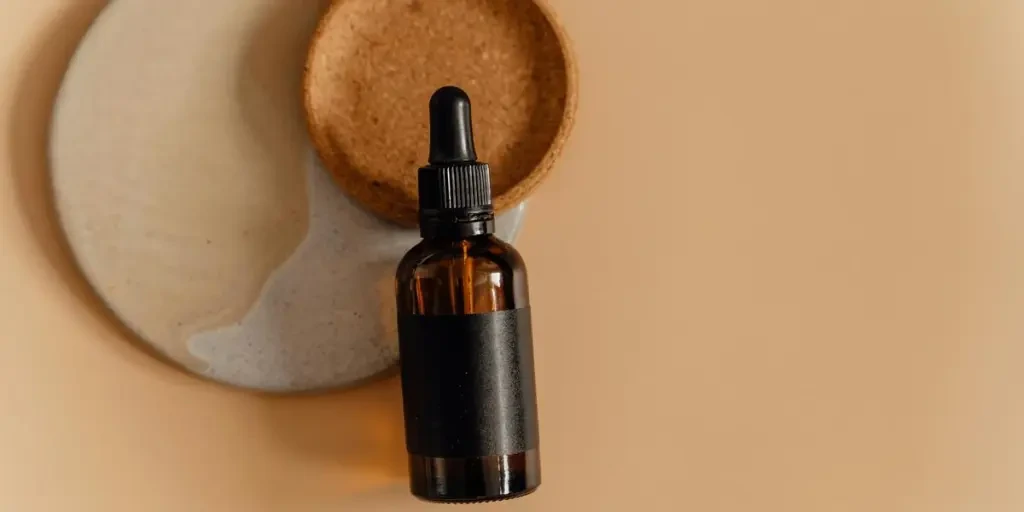
Ingredienti e formulazioni innovative
Il mercato dei sieri per la pelle è in continua evoluzione, con l'introduzione di nuovi ingredienti e formulazioni per affrontare in modo più efficace specifici problemi della pelle. Una delle innovazioni più notevoli è l'uso degli esosomi nella cura della pelle. Gli esosomi sono piccole vescicole che facilitano la comunicazione e la rigenerazione cellulare, rendendoli altamente efficaci nei trattamenti anti-invecchiamento e di riparazione della pelle. Marchi come (plated) Skin Science hanno sviluppato sieri agli esosomi che mirano a rughe, rossori e macchie marroni, offrendo una potente soluzione per la pelle che invecchia.
Un altro ingrediente rivoluzionario è l'uso di retinoidi di origine vegetale, che forniscono i benefici dei retinoidi tradizionali senza l'irritazione associata. Prodotti come Origins PLANTSCRIPTION™ Active Wrinkle Correction Serum combinano retinoidi con principi attivi vegetali per ridurre le rughe e migliorare la tonicità della pelle, soddisfacendo le esigenze dei consumatori con pelle sensibile. Queste innovazioni evidenziano il potenziale dei nuovi ingredienti per rivoluzionare il mercato della cura della pelle e offrire agli acquirenti aziendali prodotti unici per differenziare le loro offerte.
Soluzioni di imballaggio sostenibili ed ecologiche
La sostenibilità sta diventando una considerazione fondamentale per i consumatori e i marchi stanno rispondendo adottando soluzioni di imballaggio eco-compatibili. Ciò include l'uso di materiali riciclabili, la riduzione dell'uso di plastica e l'implementazione di sistemi di imballaggio ricaricabili. Ad esempio, marchi come Glow Recipe sono noti per il loro impegno verso la sostenibilità, utilizzando bottiglie di vetro e una quantità minima di plastica nei loro imballaggi. Ciò non solo riduce l'impatto ambientale, ma attrae anche i consumatori attenti all'ambiente.
Gli acquirenti aziendali dovrebbero considerare di rifornirsi di sieri che diano priorità a imballaggi sostenibili per allinearsi ai valori dei consumatori e contribuire alla salvaguardia ambientale. Offrire prodotti con imballaggi ecosostenibili può migliorare l'immagine del marchio e attrarre una base di clienti fedeli che apprezza la sostenibilità.
Marchi emergenti e i loro punti di forza esclusivi
Il mercato della cura della pelle sta assistendo all'ascesa di diversi marchi emergenti che portano sul tavolo punti di forza di vendita unici. Ad esempio, Eadem, un marchio fondato da BIPOC, si concentra sulla creazione di prodotti specifici per la pelle ricca di melanina. Il loro siero Smooth Slate Ingrown Relief affronta i comuni problemi post-depilazione come peli incarniti e iperpigmentazione, colmando una lacuna nel mercato per prodotti su misura per tonalità di pelle più scure.
Un altro marchio degno di nota è Kopari, che offre sieri autoabbronzanti personalizzabili che consentono agli utenti di ottenere una luminosità personalizzata. Il loro siero viso autoabbronzante graduale combina ingredienti per la cura della pelle come acido ialuronico e niacinamide con DHA naturale, fornendo un'abbronzatura modulabile e senza striature. Questi marchi emergenti dimostrano il potenziale di innovazione e specializzazione nel mercato della cura della pelle, offrendo agli acquirenti aziendali l'opportunità di diversificare la propria gamma di prodotti e soddisfare le esigenze di nicchia dei consumatori.
Considerazioni chiave per l'approvvigionamento di sieri per la pelle
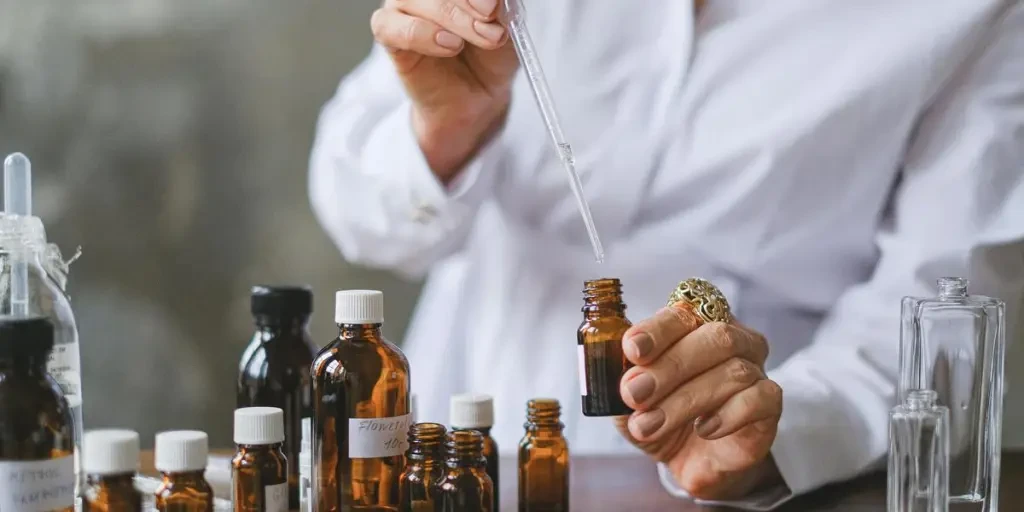
Valutazione della credibilità e dell'affidabilità del fornitore
Quando si acquistano sieri per la pelle, è fondamentale valutare la credibilità e l'affidabilità dei fornitori. Ciò comporta l'esecuzione di controlli approfonditi sui precedenti, la revisione delle certificazioni dei fornitori e la valutazione del loro track record nel settore. I fornitori affidabili dovrebbero avere certificazioni come ISO 9001 per la gestione della qualità e ISO 22716 per le buone pratiche di fabbricazione nei cosmetici. Queste certificazioni indicano che il fornitore aderisce a elevati standard di qualità e sicurezza.
Inoltre, è essenziale stabilire canali di comunicazione chiari con i fornitori per garantire la trasparenza e affrontare tempestivamente eventuali potenziali problemi. Audit e ispezioni regolari possono aiutare a verificare che il fornitore mantenga una qualità costante e rispetti gli standard normativi. Collaborando con fornitori affidabili, gli acquirenti aziendali possono garantire l'autenticità e la qualità dei sieri che offrono ai propri clienti.
Comprensione della conformità normativa e delle certificazioni
La conformità normativa è un aspetto critico per l'approvvigionamento di sieri per la pelle, poiché diverse regioni hanno normative specifiche che disciplinano la formulazione, l'etichettatura e la commercializzazione dei prodotti cosmetici. Ad esempio, il Regolamento sui cosmetici (CE) n. 1223/2009 dell'Unione Europea richiede che tutti i prodotti cosmetici siano sottoposti a una valutazione di sicurezza e registrati nel Cosmetic Products Notification Portal (CPNP) prima di essere immessi sul mercato. Analogamente, la Food and Drug Administration (FDA) degli Stati Uniti ha linee guida per l'etichettatura e la sicurezza dei prodotti cosmetici.
Gli acquirenti aziendali devono assicurarsi che i sieri che acquistano siano conformi alle normative pertinenti nei loro mercati target. Ciò include la verifica che i prodotti siano privi di sostanze proibite, correttamente etichettati con elenchi di ingredienti e accompagnati da schede di sicurezza. La conformità agli standard normativi non solo garantisce la sicurezza dei consumatori, ma protegge anche l'azienda da responsabilità legali e potenziali richiami.
Valutazione delle tendenze del mercato e delle preferenze dei consumatori
Rimanere informati sulle tendenze del mercato e sulle preferenze dei consumatori è fondamentale per reperire sieri per la pelle che soddisfino le attuali esigenze. Ciò comporta il monitoraggio dei report del settore, l'analisi del feedback dei consumatori e il monitoraggio delle tendenze emergenti. Ad esempio, il crescente interesse per prodotti di bellezza puliti e naturali ha portato a una maggiore domanda di sieri formulati con ingredienti biologici e vegetali. Marchi come Youth to the People hanno capitalizzato questa tendenza con il loro Superfood Skin Drip Smooth + Glow Barrier Serum, che combina un'idratazione ricca di vitamine con estratti naturali.
Comprendere le preferenze dei consumatori implica anche riconoscere l'importanza dell'efficacia del prodotto e dell'attrattiva sensoriale. I sieri che offrono risultati visibili, texture piacevoli e profumi accattivanti hanno maggiori probabilità di attrarre clienti abituali. Allineando le offerte di prodotti alle tendenze di mercato e alle preferenze dei consumatori, gli acquirenti aziendali possono migliorare il loro vantaggio competitivo e guidare la crescita delle vendite.
Conclusione: il futuro dei sieri per la pelle nel settore della bellezza
Il mercato dei sieri per la pelle è pronto per una crescita e un'innovazione continue, guidate dai progressi nella tecnologia degli ingredienti, dagli sforzi per la sostenibilità e dall'ascesa di marchi di nicchia. Gli acquirenti aziendali che restano sintonizzati sulle tendenze del mercato, danno priorità alla qualità e alla conformità normativa e offrono gamme di prodotti diversificate saranno ben posizionati per soddisfare le richieste dei consumatori e capitalizzare le opportunità emergenti. Con l'evoluzione del settore della bellezza, i sieri per la pelle rimarranno una categoria vitale, offrendo soluzioni mirate per un'ampia gamma di problemi di cura della pelle.
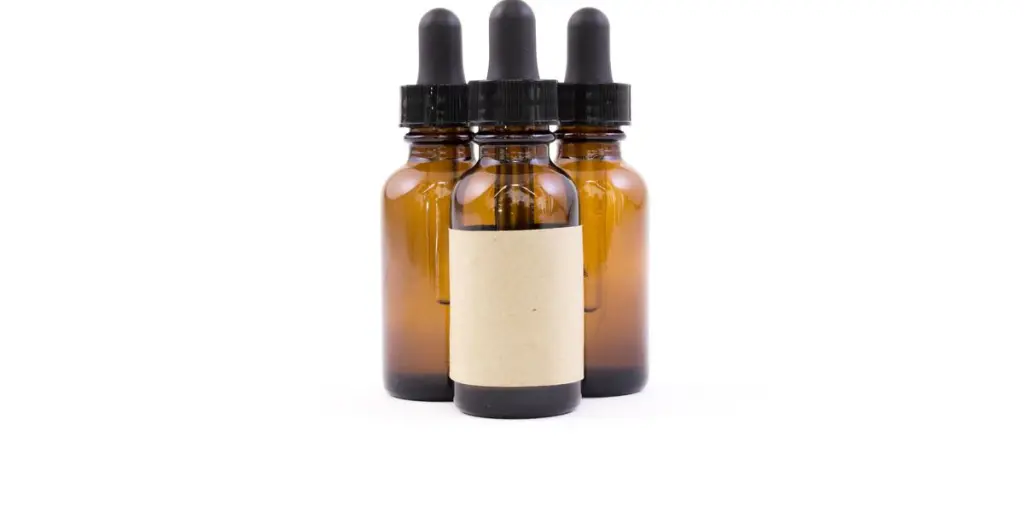




 বাংলা
বাংলা Nederlands
Nederlands English
English Français
Français Deutsch
Deutsch हिन्दी
हिन्दी Bahasa Indonesia
Bahasa Indonesia Italiano
Italiano 日本語
日本語 한국어
한국어 Bahasa Melayu
Bahasa Melayu മലയാളം
മലയാളം پښتو
پښتو فارسی
فارسی Polski
Polski Português
Português Русский
Русский Español
Español Kiswahili
Kiswahili ไทย
ไทย Türkçe
Türkçe اردو
اردو Tiếng Việt
Tiếng Việt isiXhosa
isiXhosa Zulu
Zulu